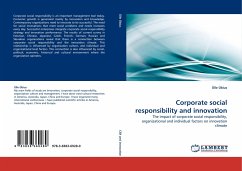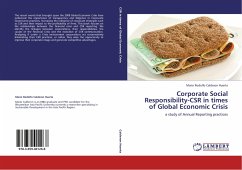In the beginning of the 1960's, pollution and immoral behaviour was common in the business world and as a reaction to this, an increased interest for socially beneficial activities occurred. Since then, large amount of literature and research has been conducted within the matter and the concept of corporate social responsibility (CSR) has developed. Today, stakeholder theory is a common aspect when discussing CSR and some researchers argue that the stakeholders influence to what extent an organization engages within socially responsible activities. Yet, there is still an inquiry to identify what social responsibility really is and to de-fine it. Due to the augmented interest for CSR many large organizations engage in CSR activities. However, one industry where little research and literature has been conducted in the field of CSR is in the context of service organizations. The purpose of this thesis is to analyze how Corporate Social Responsibility is defined and how it is exercised in the context of service organizations and also the importance of different stakeholders in this process.
Bitte wählen Sie Ihr Anliegen aus.
Rechnungen
Retourenschein anfordern
Bestellstatus
Storno








